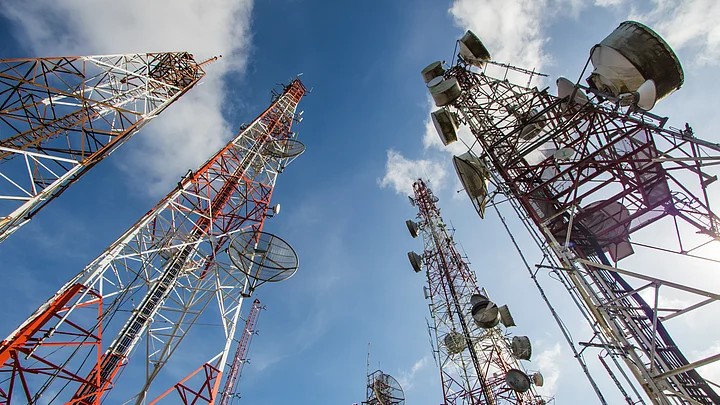The Telecommunications Bill, 2023, was introduced in the Lok Sabha by Union IT Minister Ashwini Vaishnaw amid sloganeering by Opposition MPs on Monday, 18 December.
The proceedings of the Lower House were adjourned shortly after.
The proposed new telecom legislation seeks to replace the colonial-era Indian Telegraph Act, 1885, as well as two other existing Acts: the Indian Wireless Telegraphy Act, 1933, and The Telegraph Wire (Unlawful Possession) Act, 1950.
The draft telecom bill was first released by the Centre in September 2022. It covered aspects related to a licensing regime for telecom service providers, setting up of telecom infrastructure, assignment and management of spectrum, protecting users from spam messages, and more.
After inviting public comments, the Union Cabinet had cleared the Bill in August 2023. While the bill has undergone several rounds of consultations with various stakeholders and industry players, the proposed legislative framework had sparked concerns of surveillance and threats to online privacy.
So, what were the salient features of the draft Indian Telecommunication Bill, 2022? Why had it drawn criticism? Have there been any changes? Catch up.
Key Provisions of Indian Telecommunication Bill, 2022
Expanded definition: Clause 2(21) of the Bill's 2022 version had expanded the definition of “Telecommunication Services'' to include “Over-The-Top (OTT) communication services”. Hence, the proposed definition of telecom services would also cover applications that run as services over the internet using data. WhatsApp, Zoom, Telegram, and Signal are a few such examples.
Concern: Experts have opined that since online OTT platforms have also been swept up in the definitions, they may have to seek licences to operate in India.
Encryption backdoor: Clause 24(2) of the Bill had empowered the central or state government to intercept "any message or class of messages, to or from any person or class of persons, or relating to any particular subject" on the occurrence of any public emergency or in the interest of the public safety.
Concern: Applications like WhatsApp and Signal, which deploy end-to-end encryption in its messaging services, may be required to either not transmit messages or intercept them.
Internet shutdowns: In the event of a public emergency or in the interest of public safety, Clause 24(2) of the draft Bill had let the central or state governments suspend communication via any telecommunication network, as long as it is necessary or expedient to do so, by issuing an order in the interest of sovereignty, integrity or national security, friendly relations with foreign states, public order, and preventing incitement to an offence.
Concern: "Just because the government wants to curtail protests by people, shutdowns can be imposed; not because there is a chance of violence happening or because there is already violence happening. Is that something that’s really proportionate? That’s the question that the Anuradha Bhasin judgment asks. Hence, any action to shut down the internet should be infused with the proportionality principle," Prasanth Sugathan, the legal director of Software Freedom Law Center (SFLC), had told The Quint.
Reinforced licensing: Clause 3 of the Bill deals with Licensing and Registration and grants the Central Government the “exclusive privilege” to “provide telecommunication services," operate networks, and issue licences to telecom service providers.
Concern: Experts believe that this could lead to a cumbersome (Know Your Customer) KYC process where users will have to register for usage of OTT platforms as they do for SIM cards and phone connections.
Dilution of TRAI's powers: The 2022 version of the draft Bill had proposed to omit several provisions of the existing Telecom Regulatory Authority of India Act, 1997, which would reportedly do away with various powers of India's telecom regulator TRAI.
Concern: “By curtailing the powers of the TRAI, the authority will be reduced to one with an extremely limited role and powers, which does not bode well for the sector to have a neutral and independent approach towards facilitating progressive and positive growth for the entire ecosystem. The implications of the draft Bill may prove to be a backward step, taking us to the pre-1997 era, by diluting the critical role and powers of the independent regulator,” the Broadband India Forum (BIF), an industry body, was quoted as saying by Hindu Businessline.
Draft Telecom Legislation Tabled as Financial Bill: Why?
President Murmu recommended the "introduction of the [Telecom] Bill in the House under Article 117(1) of the Constitution and also recommends to the House the consideration of the Bill under Article 117(3) of the Constitution," as per a parliamentary bulletin issued on Sunday, 17 December.
This means that the Telecommunications Bill, 2023, was introduced by the government as a financial bill. The Digital Personal Data Protection (DPDP) Act, 2023, had also been tabled as a financial bill in the Monsoon Session of Parliament this year.
But, why does this matter?
A financial bill needs to be passed by both Houses of Parliament. However, the speaker is empowered to certify a financial bill as a 'money bill' after it is passed by the Lok Sabha.
If a financial bill gets certified as a money bill, then the Rajya Sabha is restricted to only making recommendations on such a bill; these recommendations would be non-binding.
On Monday, Bahujan Samaj Party (BSP) MP Ritesh Pandey opposed the introduction of the Telecom Bill as a 'financial bill' since it paves the way for the Bill to be certified later as a 'money bill' and escape the scrutiny of the Rajya Sabha.
Instead, Pandey demanded that the Telecom Bill be tabled as an ordinary bill and sent to a parliamentary committee for further review.
